Four-legged graduation for NI school assistance dogs
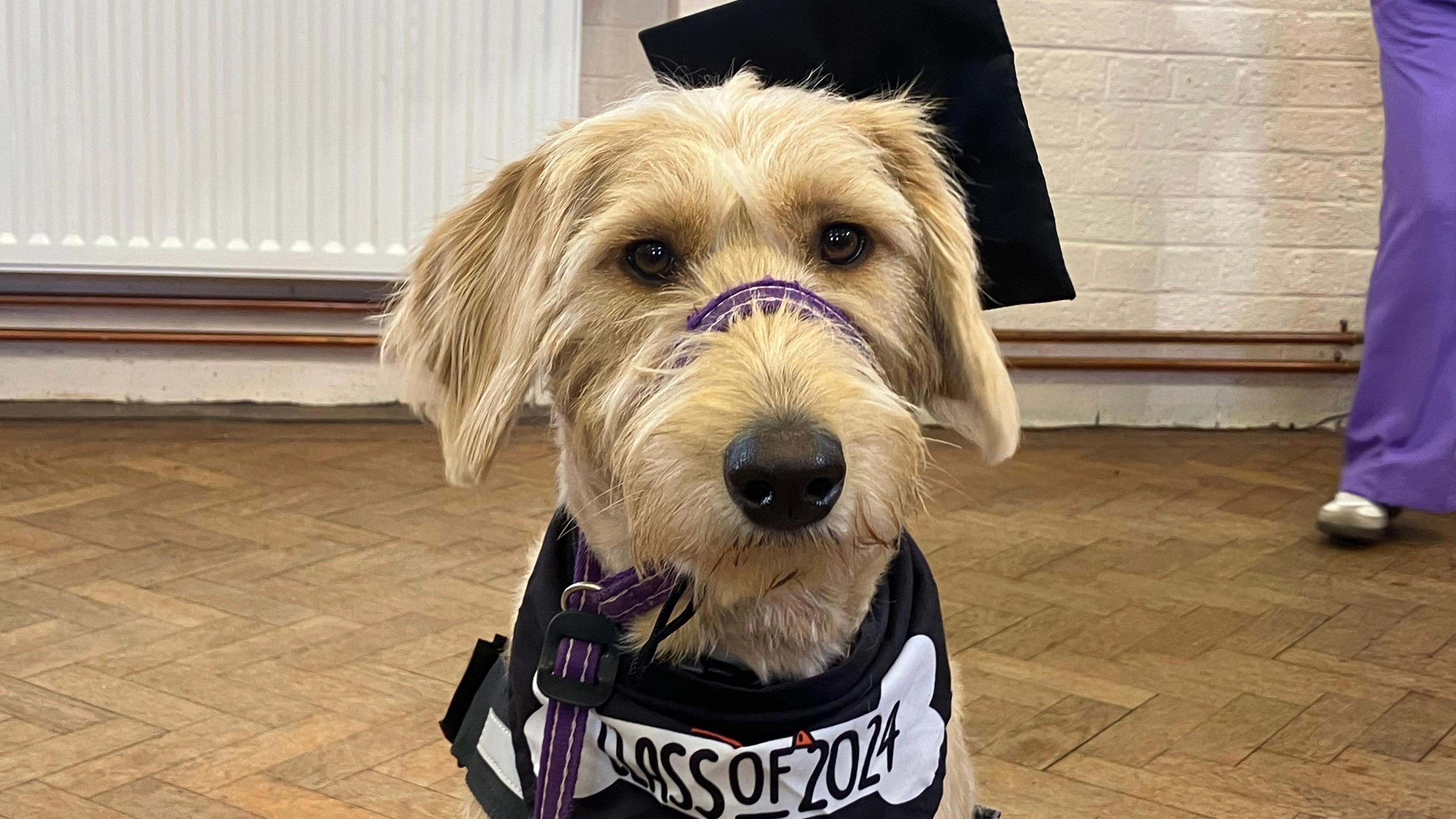
Dogs like Penny can provide social and emotional support, including for children with special educational needs
- Published
It was a graduation ceremony with a four-legged difference.
Tails wagging, munching on special buns,12 assistance dogs have marked the end of their training.
Poga, Penny, Peanut, Pablo, Parker and others have been trained to work in schools to provide social and emotional support to pupils.
Assistance Dogs NI, which organises training for the dogs, held the ceremony in south Belfast to give them all a proper send-off.
Reading to dogs
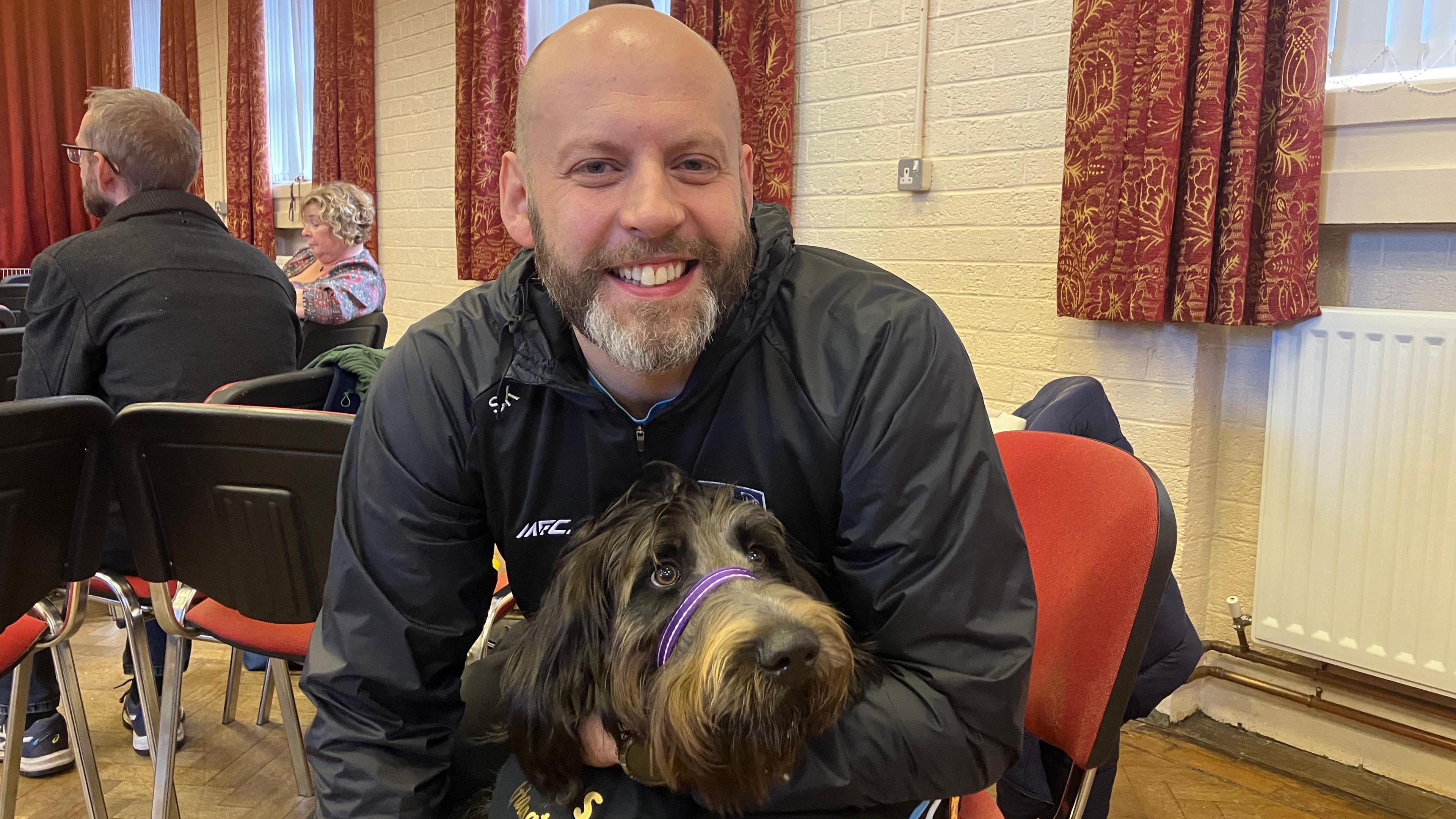
Teacher Simon Kelly says Pablo has helped encourage pupils to read more
The dogs have been attached to schools since they were young pups, which gives them time to get used to the environment, and pupils and staff.
But the graduation marked the end of their training, which lasts almost a year.
In that time Pablo has even helped to encourage pupils at Drumglass High School in Dungannon to read more, according to teacher Simon Kelly.
"He goes in and out of classrooms and works with all of our children," Mr Kelly said.
"We noticed in school that we have some reluctant readers," he said.
"So Pablo comes along and they would get into a chair with Pablo and he'll jump up on to their knee," he added.
"They feel that they can read to him, he's just there to listen.
"We've actually found that our reading has increased in school and especially if you can read to the dog, that's really encouraged our children."
Canine companionship
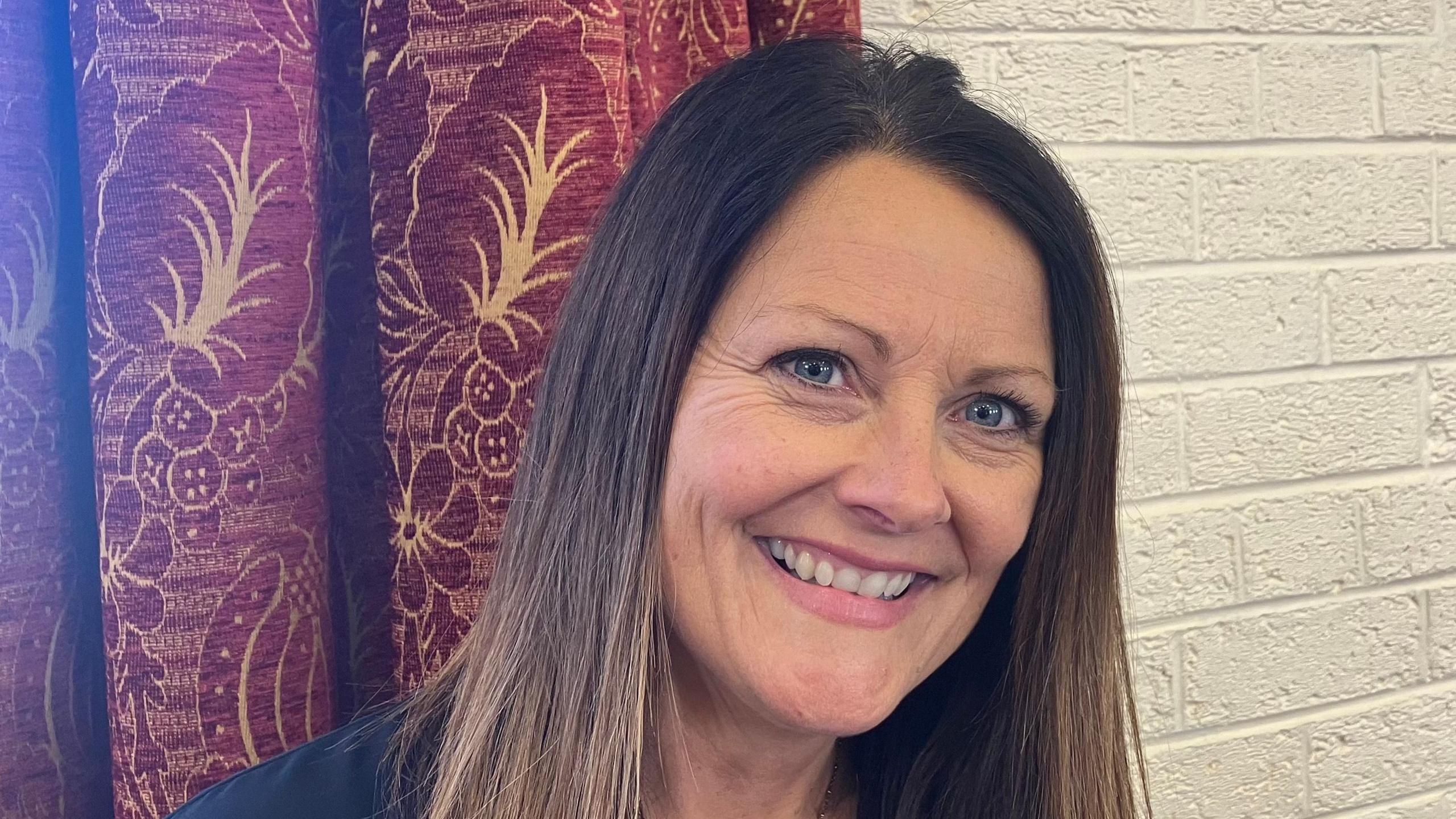
Vice-principal Fiona Smart, from Brooklands Primary in Dundonald, says all the pupils in her school benefit from their dog Peanut
Some special schools have had specially trained assistance dogs to help pupils for a few years.
They provide social and emotional support, including for children with Special Educational Needs (SEN).
Some are also specially trained to provide companionship for autistic pupils.
But according to vice-principal Fiona Smart from Brooklands Primary in Dundonald, all the pupils in her school benefit from their dog Peanut.
"He's been an amazing part of the school team," Ms Smart said.
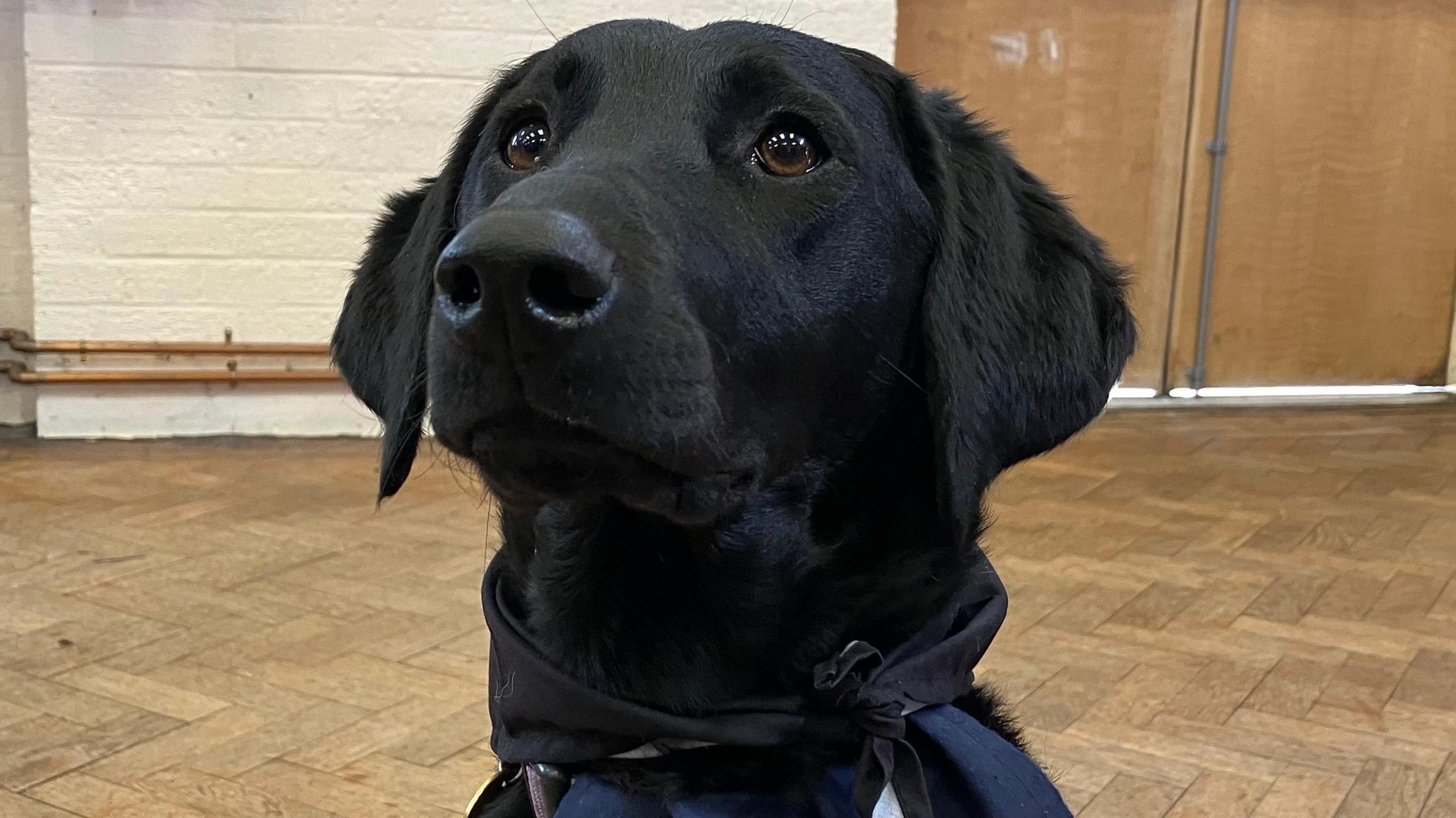
Twelve assistance dogs, including Peggy, graduated from their training at the cermeony
"He lives with me at home, with my daughters and family, and comes to school every day," she said.
"He meets the P1s and 2s every morning on the door, and they pat him, give him a big welcome and then come happily into school," she added.
"And if anyone's having a hard day he just sits beside them and they can sit and have a wee pet."
Peanut even comes to swimming lessons with one class.
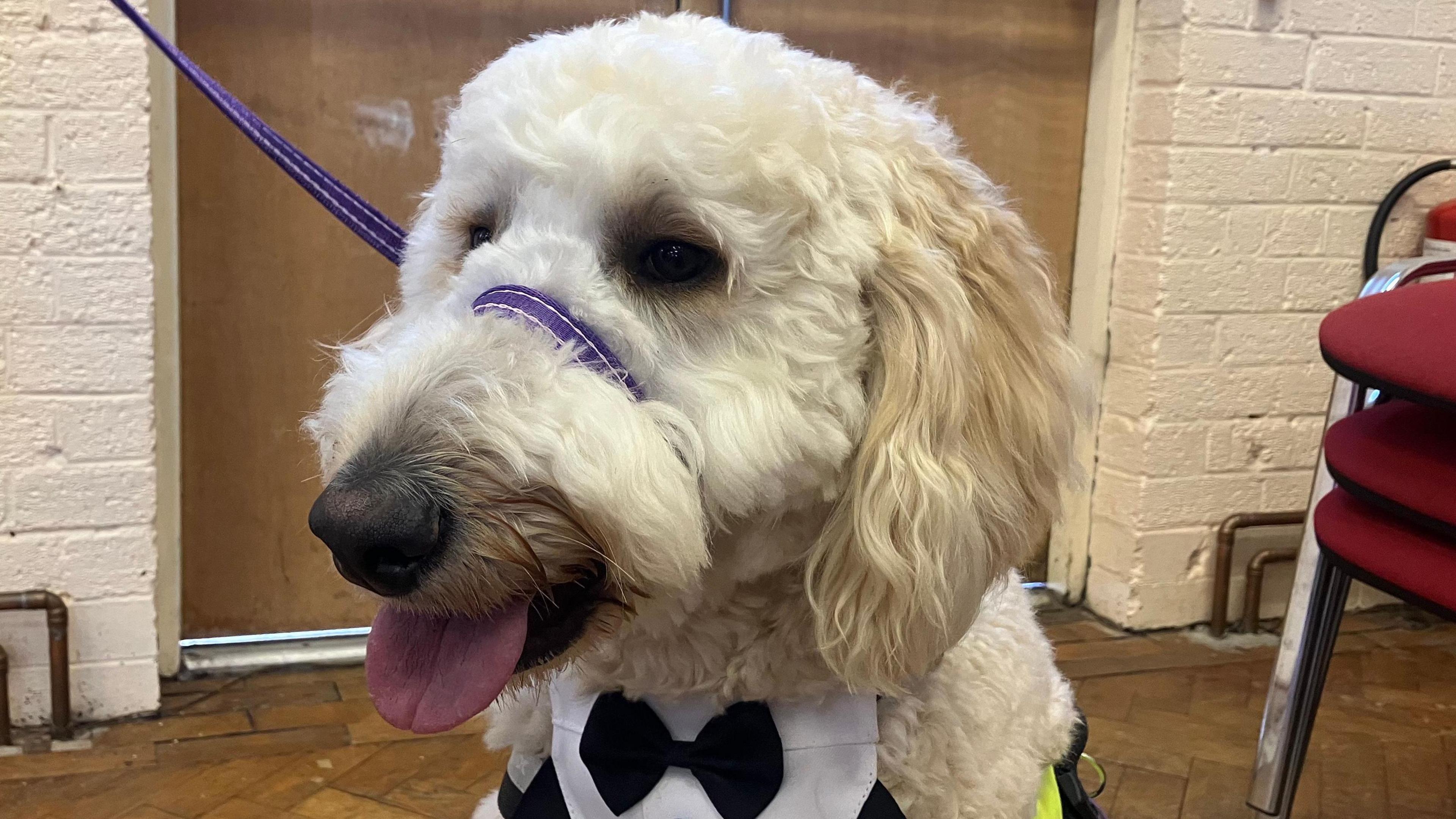
Assistance Dogs NI say labradoodles are the most popular breed to be trained as assistance dogs in schools
"We've some children anxious around the water and they've taken Peanut," Ms Smart said.
"And he is poolside beside them, and doesn't take his eyes off the children who are anxious and when they come out he's straight over with a wee nudge as if to say 'you can do it.'"
"He's so in tune to what the children need."
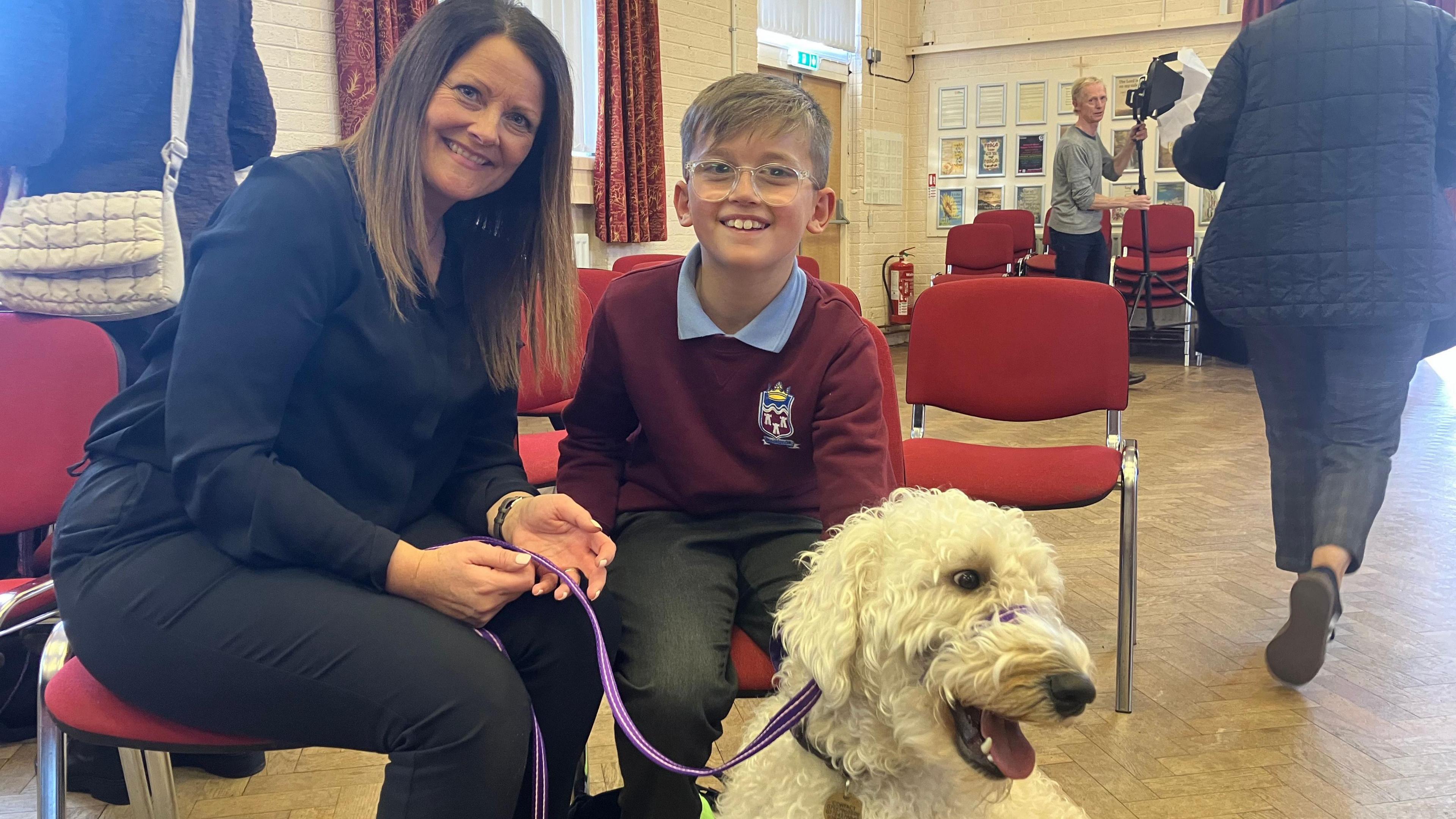
Peanut even comes to swimming lessons with one class
Nine-year-old Caleb is a pupil at Brooklands and he told BBC News NI about some of Peanut's other roles.
"He comes to assembly and singing practice and helps lots of kids with concentrating," he said.
"We all love him, he's the most known in the entire school."
'He helps lots of kids with concentrating'
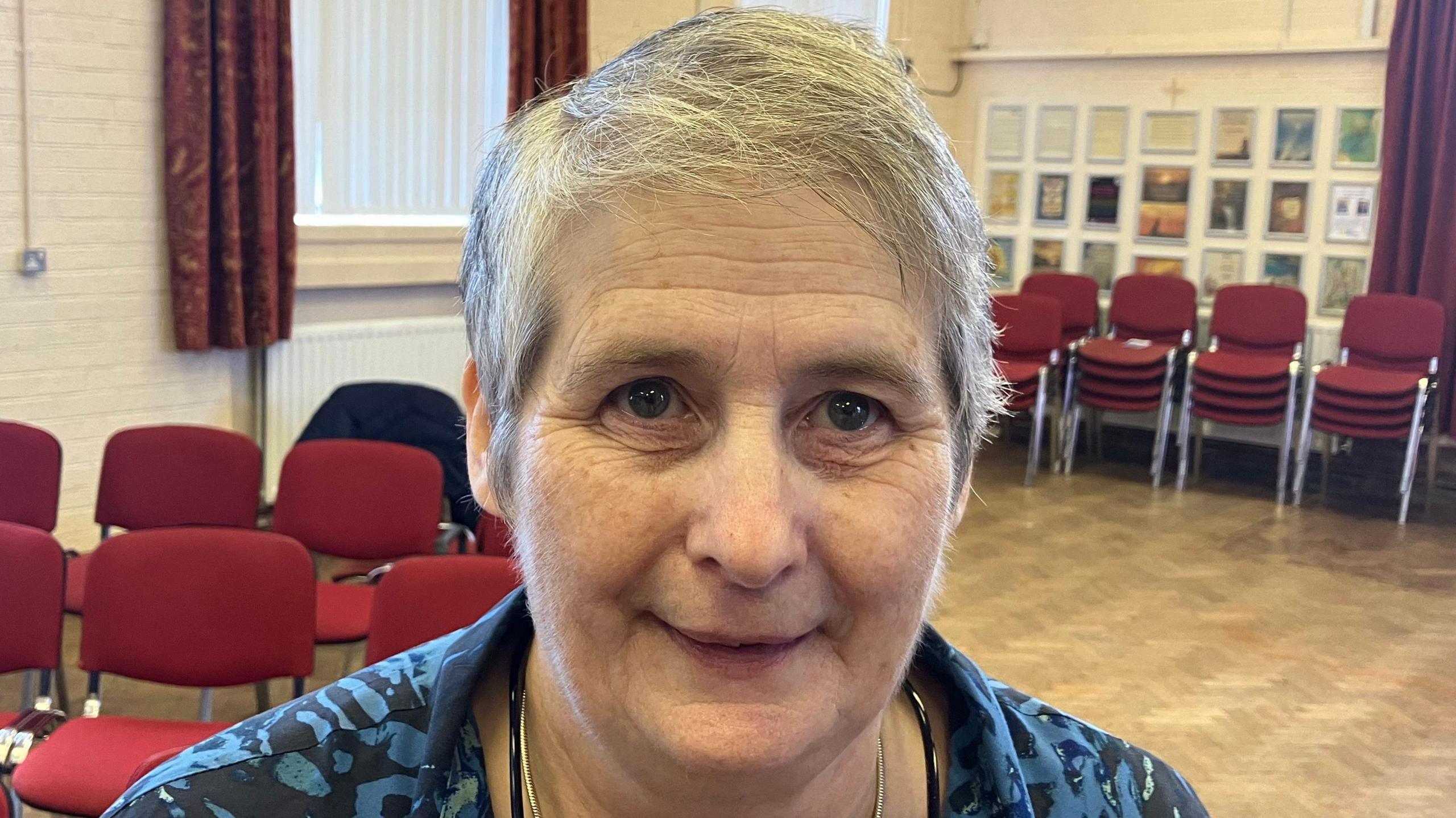
Geraldine McGaughey, from Assistance Dogs NI, says dogs make "a difference"
Geraldine McGaughey is the chief executive of Assistance Dogs NI and she says the dogs are trained from the age of 12 weeks by their foster families.
"It's very intensive, basically 24/7," Ms McGaughey said.
"From very early on they are touched on their ears, their paws, their tails, so they're going to get used to that because that's what children do," she said.
"They become very accustomed to it."
She added: "So whenever they go into the school environment, whenever they're fully trained, it's not going to take a fizz out of them."
She told BBC News NI that labradoodles were the most popular breed to be trained as assistance dogs in schools.
"Just their sheer presence in from being a pup is making a difference," she said.